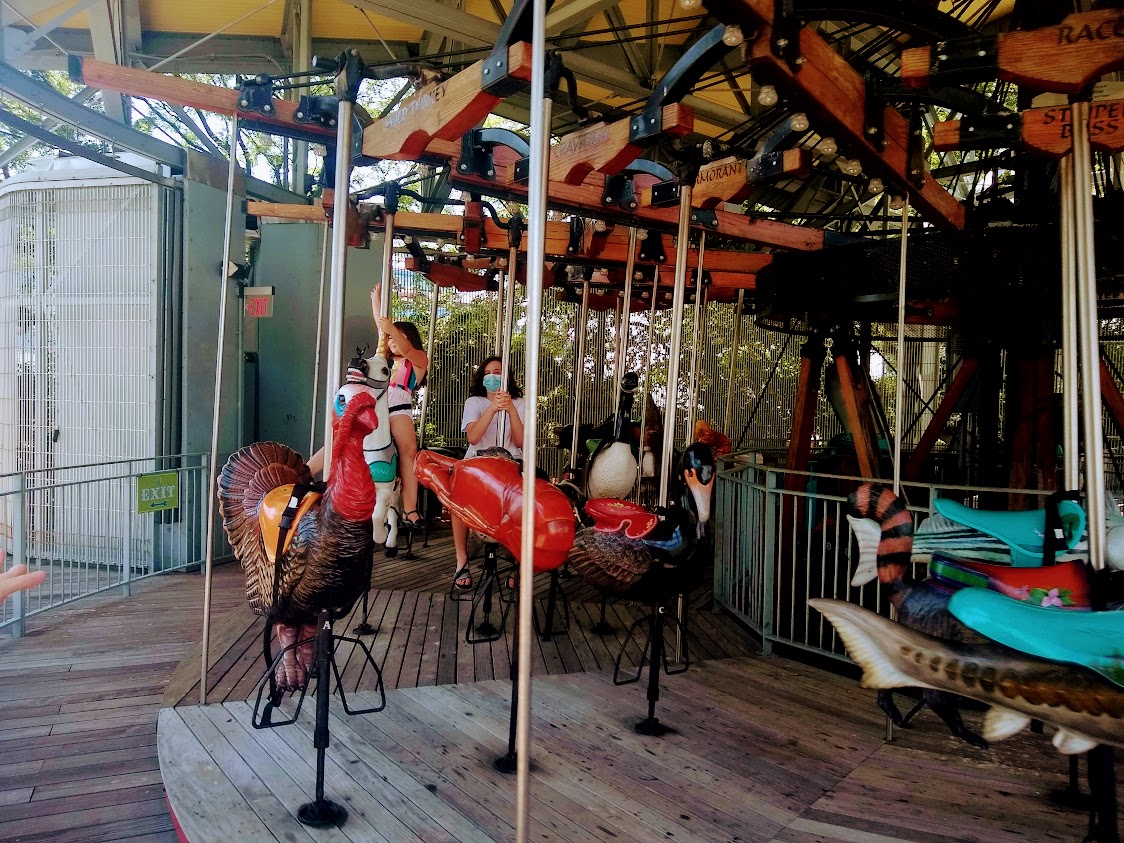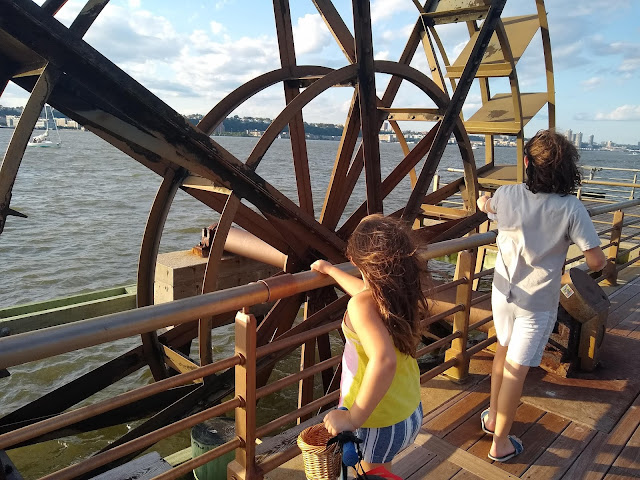Confessions of a Jester Mom
Really liked this article Why Alone Time is So Important for Boys and Girls by Dr. Peggy Drexler.
Some great advice. Makes the point that it's not simply over-scheduling kids that's a problem, but over-entertaining them as well. Dr. Drexler opens with the example of a boy who walks in the door from school or camp and "...expectantly asks his mom, Maggie: So what do we do now?" The mom is clearly busy, but she lets herself be interrupted, and does something fun with her child. Nothing wrong with that, but "Maggie sometimes wonders if Tommy couldn't do some of these after-school activities by himself -- or maybe spend a quiet afternoon reading a book...". Still she gives in and they go to the park or play a game so that her son will have a fun afternoon. A reasonable position (and one I am almost always in myself).
Kim John Payne, M.ED. notes the parent-as-ever-willing-playmate trend in
his book Simplicity Parenting. "...As a society," he writes, "We parents have signed on to be our children's lifelong 'entertainment committees'. We're unpaid performers, that's for sure, but performers nonetheless...A break in the festivities (or in the string of classes and playdates) and we are liable to jump up and dance. No wonder we're exhausted."
I do try "quiet time" at home on occasion, and sometimes ask Wally to play alone so I can finish work. There's always this initial resistance, and then he often gets into a flow state and I hear him chattering away in his room playing dress up and flying airplanes. But still he often reports back at short intervals saying, "Was I playing nicely?" like a dog waiting for a treat to be thrown into his mouth. The initial resistance makes me think of the way many of us have that to doing something quiet that we enjoy in the evening. At first it is hard to pull oneself away from a screen or the sense of something you should be doing (much easier to pretend you are working when you're on the computer, regardless of what you're actually doing). But then within ten minutes or so of writing or reading or whatever quiet activity it is -- maybe weeding in the garden -- you get into that flow state and you think "Why did I resist this? It's so wonderful."
As far as alone time for Wally, this article made me realize I don't make time for it often enough, and definitely not consistently. I say no easily to the ice cream truck or toys in the grocery store (a huge display now, right when you walk in), but when the question is, "Will you play with me?" I am a total sucker, and immediately give in.
Different story at playgrounds where I'm an expert at plunking myself down on a bench and talking to grownup friends while insisting that Wally scamper off. I love it when other parents follow suit. One even refuses to "help" a kid trying to do monkey bars that are out of reach, saying, "Do something you can do without me." I love that. Last week, a friend-parent of mine suggested we go sit on the playground structure because the kids wanted us to ride in their airplane. I did it reluctantly, feeling she won the "better mom" trophy that night for doing it happily, and sticking it out longer. But now I can refer to this article and quote it, saying:
"The role of the ever-present playmate that I see many parents slipping into can indeed be damaging. We've been reading lately about how Americans, by and large are raising a generation of spoiled children. In many ways, overindulging kids with scheduled time and constant parental attention is akin to spoiling them rotten with material goods."
An over-entertainer is different from a helicopter parent. You can be both, but you can also be one without the other. Helicopters can protect but essentially ignore, and over-entertainers can be the fun but kind of crazy moms or dads who end up chasing hyper kids way too close to the river and getting the stink-eye from other parents. It's funny to realize I am guilty of being an over-entertainer, an ever-willing playmate much of time. That makes me a kind "peer parent" in my own right, if in a different way from the ones I mocked here. There should be a name for that kind of parent. The ringmaster? The court jester?
Dr. Drexler continues:
"... filling our kids every waking minute, with sports or just plain companionship, we risk stifling their self-sufficiency, as well as their imaginations. We risk raising children who always seek support."
This goes to the child as king idea, which isn't good for the kid. Denise Schipani writes about in Mean Moms Rule. "We're raising a nation of individuals, sacrificing our own pursuits, often, for the sake of their happiness, and leaving by the wayside the idea that all family members should sacrificie for the whole, as well as join in the celebration..."
In the last chapter of her book Ms. Shipani writes, "I want [my children] to see us working hard and understand the value of it. I want them to feel gratitude and empathy. I want them to feel their place in the history of their family. I want them to be independent." She spends the chapters leading up to that making a convincing case that raising kids to be empathic, hardworking and independent means taking the "long view", doing things that are often harder in the short term. The subtitle of the book says it: "Why Doing the Hard Stuff Now Creates Good Kids Later".
In the 2007 Boston Globe article Leave those kids alone: The idea that adults should be playing with their kids is a modern invention -- and not necessarily a good one, Christopher Shea reports on how anthropologist David Lancy "draws on decades of ethnographic work to show how rare parent-child play has been in the world" and reveals that "As recently as 1914, the US Department of Labor's Child Bureau advised parents not to play with babies, for fear of overstimulating their little nervous systems". Other experts disagree with Lancy, including Jerome Singer, an author and advocate for parents modeling and encouraging imaginative play with their kids. The focus of the article is on questioning the legitimacy of pushing the upper-middle class model of interactive parent-child play on low-income families. An associate professor at Harvard's Grad School of Education, Mica Pollack, suggests that the parenting model more commonly used by low-income families (less supervision, stricter rules) "teaches virtues such as patience and adaptability better than more freewheeling parenting styles" (Shea's words).
Professor Pollack's comment on certain middle-class moires goes right to Kolbert's article about spoiled children, which I wrote about last week. Pollack says, "Some of those children [the ones raised with a hands-on, interactive approach] are being raised to be spoiled, demanding, requiring constant adult attention, and inclined to argue with their parents."
All this makes me realize that to raise kids who are grateful, self-sufficient and able to delay gratification means we, as parents, often have to delay gratification for ourselves right now, which is, by definition, when you have to do it. Sure it's a great feeling to see a giant smile on the kid's face when you turn away from the computer or folding clothes and say, "What should we do now?" just like it's great to see the smile when you buy the shiny red car or hand them the already-dripping-down-your-arm chocolate and vanilla twist ice cream. But you can't always give in--for their sanity or yours. Always giving in will make you stressed and overwhelmed and lead to more tension overall. Plus you have to be willing to be the mean mom, to sometimes relinquish your role as court jester, because it's what's best for your kids.
It's okay for them to play alone, even if they're sad and whining at first and saying really pathetic, attention-getting things like "Nobody likes me." Of course the kids want to be entertained, just like they want ice cream for dinner. That doesn't mean you always give it, but it does mean--even when sad--the kids are alright. (And they'll be even better, once they learn how to rely on themselves every once in a while.)



THANK YOU. What excellent articles, too....I struggle with this all the time raising one kid - I used to feel SO bad that other kids always have siblings to play with, and that other kids have this constant stream of 'playdates' - even after school, every single day, which I just can't handle. But reading research and posts like yours is reminding me that my instinct that "She'll be okay!" is right - I feel like 6 hours at school with all those kids is ENOUGH. Then she's got ballet class, which is more interaction...quietly reading and playing on her own really does develop patience, IMAGINATION and it is relaxing. I just can't handle the play date thing, maybe on weekends if we're around, but it drives me insane the second the bell rings kids come racing out of the class to run to their parents and there is never a "Hello", just this instant chorus of "Can I have a play date with so and so, can so and so come over, can I go over to so and so's house, come on!" and whining ensues, and the parents get all, "Welll...oaky, I guess we can ask, but you do have gymnastics but maybe..." and they all run off with parents shouting, "Ok, I'll pick up Jimmy and bring him by the gym place later and you can drop off suzy and then we'll bring hoosiewhat'sit home later...." and then it is over and my and my kid are standing there in the silence. And we go home to read and rest. I used to worry I was isolating her, we are the ONLY family who does not engage in this constant hyper socialization...but my daughter is well liked, makes friends easily, is confident - I'm so heartened by this post, our after school time is meant for rest, playing, home work, and single child families are just as valid and we don't need 'pretend' siblings to 'fill' our time. Add to this that I hate play dates as most of the kids in class are entitled mean kids with no self esteem, and frankly 'play dates' end up meaning Baby sitting for me, as these kids cant seem to function without an adult waiting on them or telling them what to play next - they're always saying how bored they are - I don't think I've ever heard my kid say that. She is too good at finding things to do, since she HAS to. This gives me strength to keep following my instincts, you are awesome Rachel, thank you!!
ReplyDeleteWOW! What a great response to get. I will answer...soon...but for now I just want to say thanks for taking all the time to read the post and respond in such a thoughtful way.
ReplyDelete